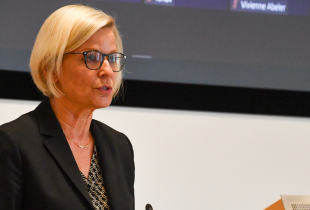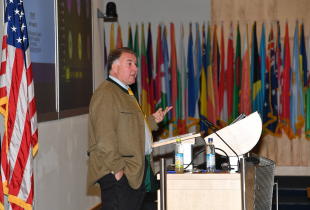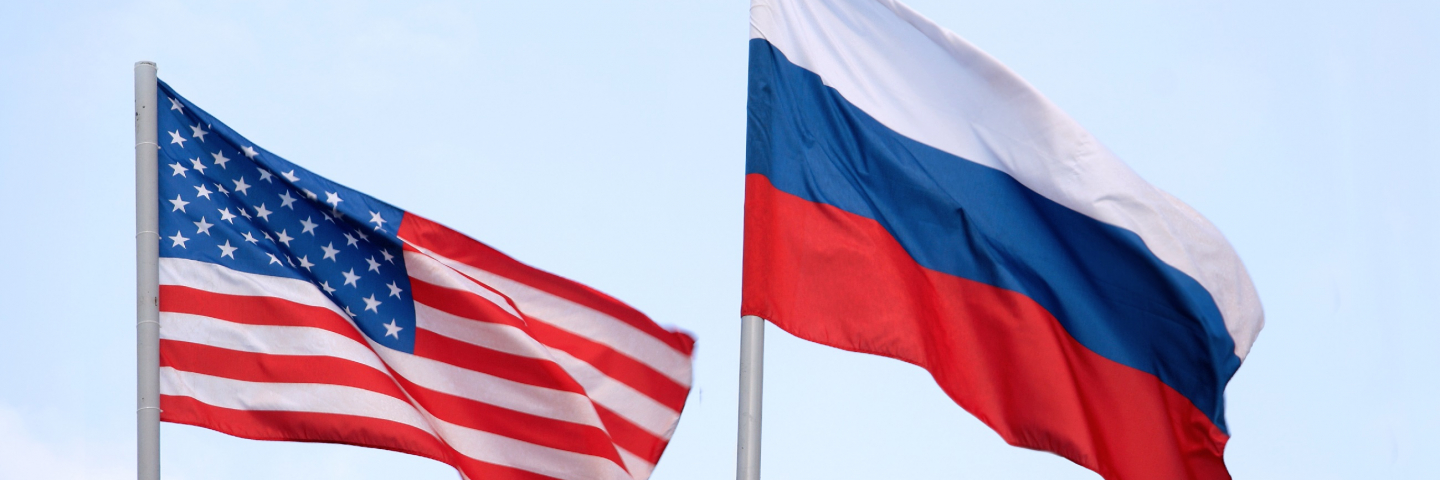
Chapter 2: Russian-U.S. Relations: Towards a New Strategic Relationship
Introduction
It is impossible to assess the U.S.-Russian relationship without framing it within the current shifts in global power dynamics. Today the balance of military and economic power is shifting to the east in relative terms.1 For the foreseeable future, China and the United States are likely to remain the global superpowers. However, with a new presidential administration under Joe Biden, some changes can be expected regarding the resurgence of U.S. global leadership and multilateral agreements. The latter includes an extension of the only remaining nuclear arms treaty between the U.S. and Russia which is set to expire in February 2021, which Moscow welcomes. Simultaneously, other power centers will continue to exert influence in specific areas namely the European Union, India, Japan, and Russia and its self-proclaimed sphere of influence. This power balance will mimic a multipolar world order with multiple centers of gravity and balance the formation of any single hegemon from emerging.2
As of 2018, the United States National Defense Strategy and National Security Strategy were updated to include Great Power Competition as a priority, listing Russia and China as revisionist actors actively trying to disrupt the U.S.-led international order.3 After the Russian annexation of Crimea and invasion of eastern Ukraine, and China’s island building projects in the South China Sea, U.S. primacy was tested in ways never seen before. For these reasons, the U.S. has had to shift its foreign policy priorities to containing these major powers. Although Russia is not a peer competitor to the United States, it remains of strategic importance due to several reasons. First, it is a nuclear superpower and poses an existential threat. Second, it is endowed with vast natural resources and weaponizes these to achieve political objectives, especially in its near abroad. Third, it has veto power in the United Nations Security Council, which it has not hesitated to exercise when containing U.S. action. Fourth, it possesses a competing vision of global order and due to its military capacity, natural resources, and asymmetric capabilities and strategies, it can project power and influence beyond its border.
Ever since the fall of the Soviet Union, it has been one of Russia’s foreign policy priorities to restore itself as a Great Power once it had recovered economically. Russia has had a preoccupation with status ever since the breakup of the USSR. The word used in Russia to describe this phenomenon is derzhavnost, “referring to a preoccupation with Great Power status regardless of whether it has the military and economic wherewithal.”4 As part of this sentiment, Russia thus feels entitled to a sphere of influence in its near abroad consisting of the former Soviet states. Russia has repeatedly defended its interests against western efforts at integrating the region into the West exemplified by the Russian invasion of Georgia in 2008 after it had been made a promise to eventually join NATO at the Bucharest summit that same year. Another example is the Russian annexation of Crimea and support of the separatist insurgency in eastern Ukraine in 2014 after the Maidan Revolution broke out because of then President Viktor Yanukovich opting out of an EU trade deal that would have taken the country on a western path. Russia’s actions in these nations demonstrate the length to which it is willing to go to defend its sphere of influence against western incursion due to its self-perception as a sovereign nation with Great Power status.
The relationship between Russia, the United States, and the West at large has been contentious in the last 30 or so years. Many of the issues stem from a fundamental disagreement on the post-Cold War security architecture. After the end of the Cold War, the West expected Russia to join the western community of nations, adopt democratic practices, and take a secondary seat to the U.S. and its allies. Contrarily, Russia sought to “transcend” the existing order and form a new and inclusive security architecture where it would play a primary role alongside the U.S. and its allies.5 Many defining events took place thereafter, which reinforced Russia’s belief that its voice was not taken into consideration for important security-related decisions. For example, Russia opposed the unilateral U.S. invasion of Iraq in 2003 and disagreed with U.S. support of Color Revolutions in Georgia in 2003, Ukraine in 2004, and Kyrgyzstan in 2005, which was viewed as an American plot to encircle Russia and minimize its influence in its near abroad. Russia was also opposed to any attempt at NATO enlargement to the east. This was especially true when it involved Georgia and Ukraine’s invitations. Though it was part of NATOs open door policy, Russia saw this as a threat to its national security and to its influence in its near abroad.6 In addition, NATO membership was not only intended to extend a security umbrella to post-Soviet states, but also to encourage their transition to democracy – which Russia viewed as a threat to its domestic stability. Other foreign policy occurrences that displeased Moscow included the overthrow of the Muammar Qaddafi regime in Libya in 2011. Moscow had abstained from voting in the UNSC resolution understanding that the West only intended to create a no-fly zone in Libya, not engage in regime change. Regime change is Russia’s greatest issue with the U.S. practice of “liberal interventionism” as it trespasses the boundaries of national sovereignty. For those same reasons, it was against Washington’s support for the opposition to Syrian President Bashar al-Assad in Syria’s ongoing conflict.
When Putin returned to the presidency in 2012 after four years as prime minister, he decided to switch courses and reverse former President Dmitry Medvedev’s efforts to modernize the country, ostensibly to protect the nation against western influence, which according to Putin risked destabilizing the country.7 Instead, he introduced stricter measures to clamp down on public protests, media freedoms, and NGO activities that rendered the relationship between Russia and the U.S. even more contentious. After the annexation of Crimea and the Russian-backed separatist insurgency in eastern Ukraine, the relationship plummeted to an all-time low. To make matters worse, Russia was accused of intervening in the U.S. Presidential elections in 2016, supposedly lending a hand to candidate Donald J. Trump.
While there is broad bipartisan consensus and well-documented instances of Russian behavior that sabotaged the U.S.-Russian relationship, there is little chance of improving said relationship without a critical analysis of U.S. behavior towards Russia. For Russia, having NATO as the only legitimate security organization for Europe is a threat to its national security. Similarly, democracy promotion in its near abroad is a threat to its domestic stability. Moreover, western attempts to curb Russian use of energy as a foreign policy tool and limiting its share of the European energy market is a threat to its economic security. To counter these threats, Russia has used aggressive military actions against Georgia and Ukraine, countersanctions against U.S. and European-imposed sanctions, and established alternative institutions to counterbalance the EU and NATO. Russia also employs the use of soft power tactics such as propaganda and disinformation to encourage a pro-Russian perspective around the world. The current confrontation between Russia and the U.S. can be described as a hybrid conflict as it is not a “hot war” but more of an asymmetric war in the realms of information, the economy, finance, and technology. It must be noted however, that over the past five years, Washington has been unsuccessful at forcing Moscow to change its course of action in the desirable direction.8
In order to achieve its goals, Russia has: intervened to demonstrate geopolitical centrality in its near abroad, acted as a mediator and arbitrator in the MENA region, established its own “unique form” of governance at home, provided security guarantees to neighboring countries, advanced its economic interests in various parts of the world, and has engaged in malign behavior such as cyber-attacks and the dissemination of propaganda to sow division among western allies. These actions have had repercussions in the transatlantic community and have exacerbated pre-existing divisions and threat perceptions among allies. In addition, western sanctions on Russia have pushed it to partner further with China, which could prove to be a dangerous alliance if it ever comes to fruition. This chapter elaborates on the main points above and concludes with recommendations on how to approach Russia to avoid the further weakening of the West, further relative gains by Russia, and a growing Russo-Chinese relationship.
Ways and Means for Russia to Achieve its Goals
Russia’s use of soft power has proven to be quite effective at sowing discord in the West. Moscow has substantially invested in its global news agencies RT and Sputnik, both of which have a large international presence and highlight alternative perspectives on international matters. Russia’s message advocates for national, economic, and cultural sovereignty. It is anti-American, anti-NATO, and rejects excessive multilateralism. This is convincing for many anti-globalization movements. RT and Sputnik tend to exhibit western hypocrisies such as instances of racism and social violence, social inequality in the United States, and the failures of the European Union to integrate migrants. In addition, they encourage dissidents of western society that do not have an equal voice to the mainstream narrative to voice their opinions. RT has increased its budget from 30 million USD in 2005 to 300 million USD in 2015, approaching the BBC’s budget of 375 million USD, which is the largest news agency in the world.9 Sputnik, another Russian news agency, is developing a similar strategy on social media. “Russia Beyond the Headlines” is now included in many respectable newspapers in more than 20 countries including the Washington Post, the Daily Telegraph, Le Figaro and La Republica.
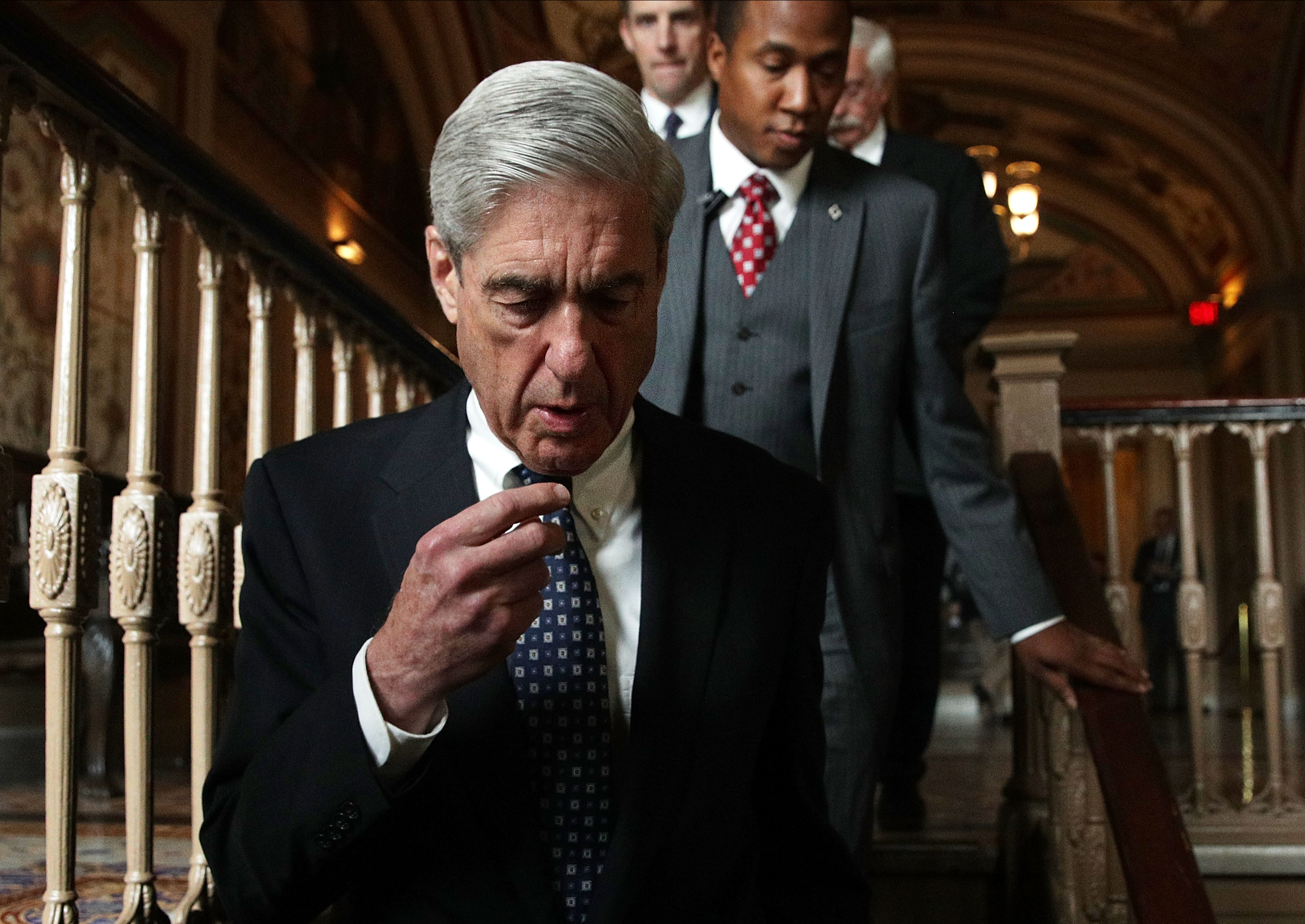
This narrative plays to the populist narrative in Europe by underlining the failures of European integration and the loss of sovereignty that result from supranational institutions as well as a continent too submissive to U.S. interests. Moscow plays on the issues of national identity and immigration by underlining the failures of multiculturalism and calling for the protection of European white and Christian identity against an invasion of migrants. The world is changing as demonstrated by trends in European and American elections and the negative rap that globalization has been receiving. Russia’s message therefore has a significant impact on those that have lost out during the processes of globalization. The U.S. is facing polarizing domestic political problems related to identity and immigration, which Russia uses to its advantage by spreading propaganda and sowing discord. A troll farm in St. Petersburg was accused of collaborating with Cambridge Analytica in the creation of fake social media accounts made for influencing U.S. voters to vote for candidate Donald Trump by emphasizing issues such as immigration, the evils of globalization, and the loss of American identity and values.10 Robert Mueller, the special counsel investigating Russian interference (“Russiagate”), indicted thirteen Russians and the St. Petersburg-based Internet Research Agency over that illegal effort.11
Russia’s historical business deals with Europe are also one of its greatest strengths and can work as leverage. Europe is known to get much of its energy needs from Russia. One of Russia’s greatest business partners is Germany. The fact that Germany remains willing to go forward with the construction of the Nord Stream 2 gas pipeline in spite of having imposed sanctions on Russia after its annexation of Crimea demonstrates the importance of energy ties between the two. Many countries in Eastern Europe are also dependent on Russian energy, and though the West has attempted to diversify its energy sources, a large percentage of gas coming into Europe comes from Russia. In 2017, thirty-nine percent of the EU’s total gas imports came from Russia.12 The construction of Nord Stream 2 will only increase Russian gas exports to Europe. The U.S. issued critical statements against the project and considers it a threat to the market position of American Liquefied Natural Gas (LNG). President Donald Trump approved American sanctions against companies involved with the construction of the pipeline, which led to the Swiss company Allseas, who places the pipes on the seabed, to pull immediately out of the project.13 Nevertheless, the construction of the pipeline will continue, and Russia hopes to have it running by the end of this year. By reaching bilateral agreements with business and political elites in different European countries, Russia can manage to keep its influence in these regions and possibly influence political decision-making at a higher level. As European countries and Americans disagree on how to deal with Russia, this undermines European solidarity and transatlantic solidarity – which ultimately translates into the weakening of American supremacy over the continent.
Russia’s involvement in Syria has been another occurrence, which undermined U.S. supremacy. The U.S. imposed “red lines” on Bashar al-Assad in 2014 as a warning against the use of chemical weapons, but even after his use of these on his own citizens, the U.S. did not go through with them. This was a critical moment, as Putin saw an opportunity to support a similar regime and extend Russia’s influence. The U.S. was seeking to limit its own involvement in the region due to the unpopularity of interventionism and expected that if Russia got involved it would create an incentive for Moscow to help settle conflict with free elections. What happened instead was the survival of Assad’s regime, room for increased Iranian influence, and far more influx of refugees into Jordan, Turkey and Europe.14 Russia’s involvement in this conflict would have been far less pronounced if the U.S. was not looking to decrease its influence in the Middle East – something it has been forced to do due to its domestic constituency and a re-prioritization of its foreign policy. As a nation-state that operates within the Realist framework of International Relations, Russia knew this and seized the opportunity.
The Ukraine Crisis was another very symbolic occurrence. Russia asserted its foreign policy priorities, which include maintaining its sphere of influence outside of western influence and defied international law to ensure it. The interesting point to dissect is the response from the West. Unlike the imposition of sanctions on Iran or North Korea, the West did not impose itself on Russia in the same capacity, leading to the assumption that the outcome may simply have produced too much of a loss for all parties. In addition, the West demonstrated that it was not willing to go to war with Russia over Ukraine, as it similarly demonstrated in Georgia in 2008. Although the western-imposed sanctions against Russia do act as punitive measures, ultimately Russia did not change its behavior, so the desired outcome of the sanctions has not been achieved. In this way, Russia knows what it can and cannot get away with due its Realist thinking of geopolitics. Russia is especially skilled at playing a weak hand in the most effective way possible to achieve gains.
Implications of the U.S.-Russian Relationship for Friends and Allies
Russia’s actions continue to exacerbate pre-existing tensions and differences within the U.S. and between the U.S. and its European allies. In addition, raised tensions between the East and the West are complicating the Western Balkans accession into western institutions. As Chinese and Russian influence increases in the region, Balkan nations are finding themselves more and more disconcerted with what appears to be a lack of western effort to integrate the region.
The United States’ unipolar moment is passing as its allies are struggling to maintain cohesion and as the international system has been experiencing a rebalancing of global power distribution. For the United States, Russian activism will continue to represent hostility to the U.S.-led international order and adherence to democratic norms. Russia is likely to continue down its current path in terms of both foreign policy and domestic policy whether or not Putin remains in power.15 This is primarily due to noticeable post-Cold War domestic and foreign policy trends witnessed in Russia that have gained popular support. The population has generally favored a “special form of democracy” and a foreign policy that asserts Russian interests as a Great Power that balances U.S. hegemony.16
The erosion of transatlantic ties and U.S. influence in Europe can be explained through shifting priorities for the United States, an antagonistic relationship between Trump and European leaders based on differences in leadership style and values, as well as changing political dynamics in Europe that Russia has been able to exploit to sow discord. President Trump has recently ordered the removal of 12,000 troops from Germany, which is extremely symbolic as it demonstrates that the U.S. commitment to Germany is not guaranteed unless Germany willingly pays two percent of its GDP towards defense spending, which it does not seem to prioritize either.17
After Russia’s involvement in the 2016 presidential elections, the U.S. toughened sanctions against Russia. The EU said this move would cause upheaval in Europe’s energy market – but the bloc remained divided with central European countries more willing to limit the bloc’s dependence on Russian oil and gas. The new sanctions affect Europe because they include sanctions on any company that contributes to the development, maintenance, or modernization of Russia’s energy export pipelines. This would affect all those working with the Nord Stream 2 pipeline, which will carry another fifty-five billion cubic meters of natural gas per year. The EU expressed frustration that these sanctions did not take EU concerns into account, therefore demonstrating a lack of unity towards Russia and a lack of transatlantic solidarity in this area.
The United States and its Western European allies are experiencing more and more divisions on threat perception and how to look at Russia. The U.S. and Eastern Europe remain on good terms for this reason, namely with Poland. But Poland and the EU are now experiencing more tense relations than ever before due to the disintegration of democratic values in Poland in the judiciary. Eastern Europe tends to view Russia as a potential aggressor and wants reinforcement on the eastern flank for protection. The rest of the continent prioritizes other security matters such as immigration and does not view Russia as a threat, undermining the possibility of a long-term unified policy coordination among allies.
The United States views Russia as revisionist, but the fact that many U.S. allies are inclined to continue to work with Russia shows that there may be some differences in worldviews. In fact, if we look more broadly, internationally an anti-hegemonic alliance supports Russian perceptions. A vast amount of developing countries agree with Russia’s and China’s views on sovereignty and non-interference in world affairs and have a dislike for the liberal interventionist, often militaristic, approach to U.S. foreign policy.18 Increasingly, developing countries are doing business with China, as China’s approach does not include the need for political or social reforms but a more direct approach to infrastructure development. This in turn increases China’s influence in many parts of the world where the West now has to compete for influence. China’s Belt and Road Initiative has extended its reach significantly in many parts of the world.19
Eastern European nations including the Greater Balkans are unwilling to return to Russia’s sphere of influence but unable to integrate into NATO due to vague promises from the former. The cost of opening NATO’s door to Europe’s East has risen dramatically. With the alliance focused on the adversarial relationship with Russia, the prospects of membership for Georgia and Ukraine appear uncertain at best.20
Opportunities, Challenges, and Recommendations
Preventing a military confrontation between Russia and the United States is obviously the most important consideration for any U.S. administration. More importantly though, a more cooperative relationship between the two would enhance both countries’ national security and global security as a whole. Though the two nations fundamentally disagree on important security-related matters, there are many areas of potential cooperation. However, unlike the previous administration, the Biden Administration has affirmed its commitment to stand firmly in defense of its national interests in response to malign actions by Russia that harm the U.S. or its allies.21
Preventing further nuclear proliferation is one area in which the U.S. and its allies could resume working together on their Iran and North Korea policies and include Russia to be a constructive contributor. Combating transnational threats from terrorism to criminal organizations is another. In addition, resolving long-standing conflicts on the Korean peninsula, Afghanistan, Syria, and Ukraine would only be possible with U.S. and Russian cooperation and willingness to negotiate. Also, the two can find ways to avoid escalation of tensions in cyberspace and in outer space and together restrain the growth of Chinese influence.22
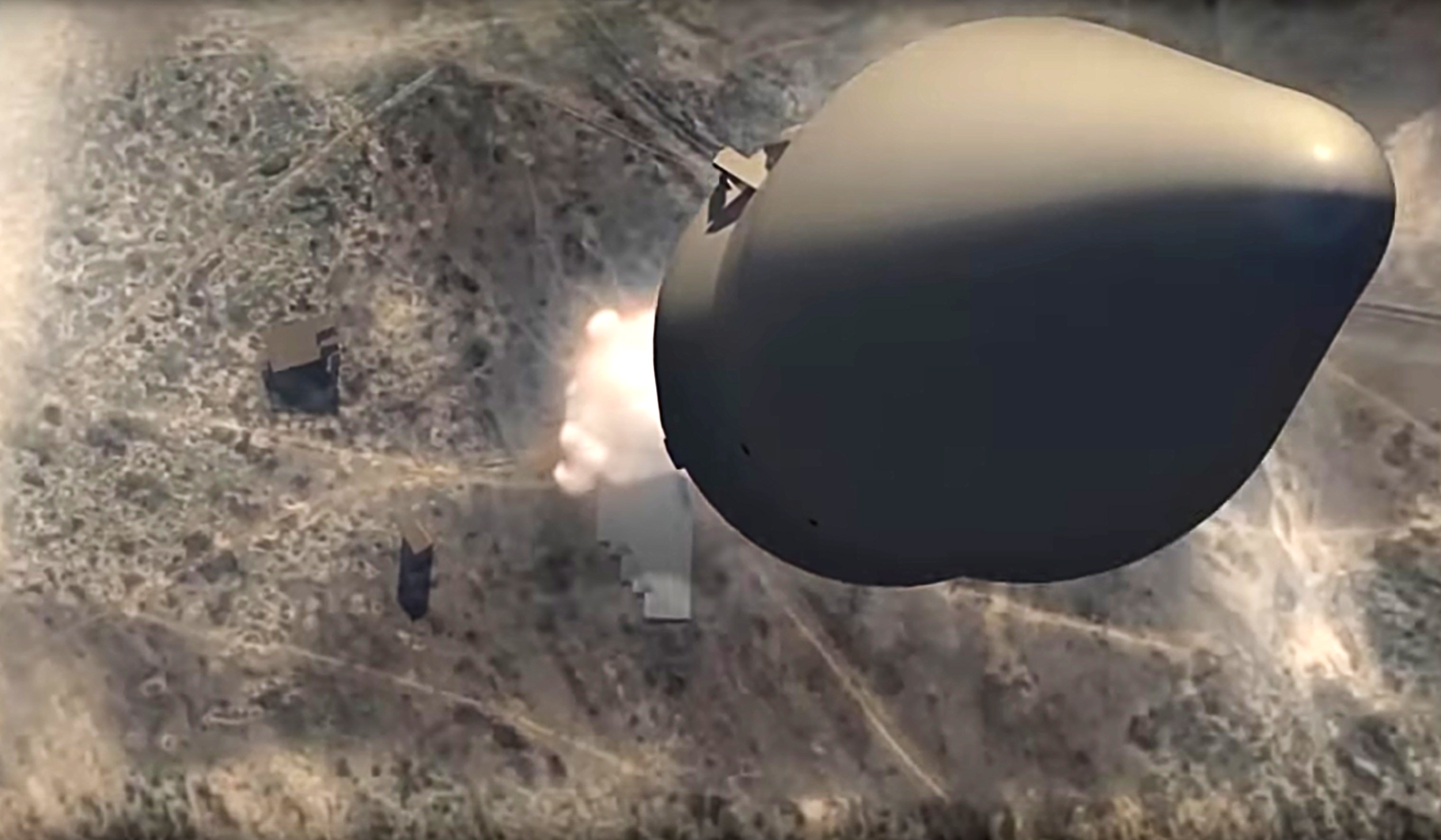
The U.S. and the EU could use the removal of sanctions as leverage for Russia to stop its malign activities. If Russia agrees to end its attacks on democracies and be an honest negotiator in arms control agreements, the Ukraine crisis, and Syria, the West could offer Russia a few attractive exchanges such as an alternative to its growing dependence on China in the form of reduced trade barriers. Also, NATO and Russia could form a new partnership by engaging in joint military exercises for accident prevention and emergency responses.23
We are likely to continue seeing a contentious relationship between Russia and the U.S. in the coming decade as both countries will continue to grapple with their profound differences in interests, values, and conceptions of global order. In addition, each of the countries’ domestic situation as well as the global geopolitical power dynamics will affect their foreign policy choices. The American public is skeptical of U.S. military interventionism and tired of bearing much of the burden for solving global problems.24 The U.S. will have to adapt to these important changing realities along with the added geopolitical power distribution, which adds another level of constraint. The U.S. will have to prioritize its security concerns, as it will not be able to extend its presence in areas that are not of vital interest. The U.S. may simply not have the interest nor the resources to lessen Russian influence in many of the countries in Russia’s neighborhood.
The same logic applies to Russia. Russia wants to regain Great Power status but is having trouble matching its economic strength with its foreign policy aspirations. Russia will have to re-prioritize the country’s internal development on the economic and technological fronts. The collapse of the Soviet Union provides a very valuable lesson for Russia today to focus more on the economy, social policies, and public sentiment.25
A fundamental distrust in the other continues to shape perceptions and foreign policy decision-making on both sides. While the U.S. views Russia as a “revisionist state” that seeks to change or disrupt the current U.S.-led liberal world order, Russia tends to view the U.S. as being hegemonic and adhering too strictly to one world view while not encouraging a world shared by multiple powers with different world views.26 It is important to note however, that outside of the Washington political and media circles, the perception of Russia as a hostile country is less poignant. In the U.S. intellectual community, a revision of foreign policy values is well underway. There have been some fundamental critiques of liberal interventionism and militarism as distinguishing features of U.S. foreign policy of the past few decades. The idea behind this research is to pave a new way forward that would match new global realities. However, these tendencies are not yet mainstream – but their existence is telling.27
Nation states are gaining more strength amid waning influence of the global institutions created by the U.S.-led Pax Americana system. And Russia’s challenge to the U.S. fits in well with this current trend. The U.S. needs to prioritize where it chooses to spend its resources militarily and economically. Washington and Moscow should work on carefully managing their strategic competition, reduce the risk of direct military confrontation, and seek cooperation in areas of mutual interests. Moreover, as global circumstances change, it may be advisable to stay open-minded about the possibility of a rapprochement, so as not to strengthen China too much. Trust is essential to restore the relationship. The U.S. and Russia need to restore strategic high-level dialogue and build mutual security in the Euro-Atlantic region.
For Academic Citation
Suzanne Loftus, “Russian-U.S. Relations: Towards a New Strategic Relationship,” in Russia’s Global Reach: A Security and Statecraft Assessment, ed. Graeme P. Herd (Garmisch-Partenkirchen: George C. Marshall European Center for Security Studies, 2021), https://www.marshallcenter.org/en/publications/marshall-center-books/russias-global-reach/chapter-2-russian-us-relations-towards-new-strategic-relationship, 9-16.
Notes
1 Gideon Rachman, Easternization: Asia's Rise and America's Decline from Obama to Trump and Beyond (New York: Other Press, 2016).
2 Richard Sokolsky and Eugene Rumer, “U.S.-Russian Relations in 2030,” Carnegie Moscow Center, (June 2020), https://carnegieendowment.org/2020/06/15/u.s.-russian-relations-in-2030-pub-82056.
3 National Defense Strategy (2017) Washington DC: United States Office of the Secretary of Defense. National Security Strategy (2017) Washington DC: The White House.
4 Deborah Larson and Alexei Shevchenko, “Status Seekers: Chinese and Russian Responses to U.S. Primacy,” International Security, 34, (2010): 63-95; 78-79.
5 Richard Sakwa, Russia Against the Rest: The Post-Cold War Crisis of World Order (Cambridge: University Press, 2017).
6 George Robertson, “Secretary General’s Eisenhower Lecture: The Relevance of Atlanticism,” NATO, September 15, 2000, https://www.nato.int/docu/speech/2000/s000915a.htm.
7 Suzanne Loftus, Insecurity and the Rise of Nationalism in Putin’s Russia: Keeper of Traditional Values (London: Palgrave Macmillan, 2018).
8 Dmitry Trenin, “U.S. Elections and Russia-U.S. Relations,” Russia in Global Affairs, no. 1, (March 2020), https://eng.globalaffairs.ru/articles/us-elections-russia-us-relations/.
9 Simon Shuster, “Inside Putin’s On Air Machine,” Time, March 5, 2015, https://time.com/rt-putin/.
10 Justin Hendrix, “Did Cambridge Analytica Leverage Russian Disinformation for Trump?” Just Security, March 21, 2018, https://www.justsecurity.org/54142/cambridge-analytica-leverage-russian-disinformation-trump/.
11 Adrian Chen, “What Mueller’s Indictment Reveals About Russia’s Internet Research Agency,” February 17, 2018, https://www.newyorker.com/news/news-desk/what-muellers-indictment-reveals-about-russias-internet-research-agency.
12 “EU Imports of Energy Products - Recent Developments,” Eurostat, July 4, 2018, 3–4.
13 Amund Trellovik, “Russian Gas Increasingly Important to Europe Published,” High North News, January 07, 2020, https://www.highnorthnews.com/en/russian-gas-increasingly-important-europe.
14 Victoria Nuland, “Pinning Down Putin: How a Confident America Should Deal with Russia,” Foreign Affairs, July/August (2020): 93-107.
15 Paul Goble, “Russia: Analysis From Washington—Primakov’s Nineteenth Century Model,” RFE/RL, August 9, 1998, https://www.rferl.org/a/1089195.html.
16 Tom Balmforth, “Levada Center, Russia’s Most Respected Pollster, Fears Closure,” Radio Free Europe, May 21, 2013, https://www.rferl.org/a/russia-levada-center-foreign-agent/24992729.html.
17 Julian Borger, “US to Pull 12,000 Troops out of Germany as Trump Blasts 'Delinquent' Berlin,” The Guardian, July 29, 2020, https://www.theguardian.com/us-news/2020/jul/29/us-germany-troop-withdrawal-donald-trump.
18 Peter Harris, “Losing the International Order: Westphalia, Liberalism and Current World Crises,” The National Interest, November 10, 2015, https://nationalinterest.org/feature/losing-the-international-order-westphalia-liberalism-current-14298.
19 Andrew Chatzky and James McBride, “China’s Massive Belt and Road Initiative,” Council on Foreign Relations, January 28, 2020, https://www.cfr.org/backgrounder/chinas-massive-belt-and-road-initiative.
20 Trenin, “U.S. Elections.”
21 Kevin Liptak, “Biden confronts Putin over several issues in first call, White House says.” CNN, January 26, 2021.
22 Eugene Rumer and Richard Sokolsky, “Thirty Years of U.S. Policy Toward Russia: Can the Vicious Circle Be Broken?” Carnegie Moscow Center, June 20, 2019, https://carnegieendowment.org/2019/06/20/thirty-years-of-u.s.-policy-toward-russia-can-vicious-circle-be-broken-pub-79323.
23 Nuland, “Pinning Down,” 93-107.
24 Mira Rapp-Hooper and Rebecca Friedman Lissner, “The Open World: What America Can Achieve After Trump,” Foreign Affairs, April 16, (2019), https://www.foreignaffairs.com/articles/2019-04-16/open-world. “Public Is Narrowly Divided on Whether the U.S. Should Be Active in World Affairs,” Pew Research Center, April 2, 2019, https://www.people-press.org/2019/04/02/large-majorities-in-both-parties-say-nato-is-good-for-the-u-s/pp_2019-04-02_nato_0-02-2/.
25 Trenin, “U.S. Elections.”
26 Harris, “Losing.”
27 Trenin, “U.S. Elections.”
About the Author
Dr. Suzanne Loftus is currently a Professor of National Security and the Deputy Chair of the Strategic Initiatives Department at the GCMC. Suzanne specializes in Russian foreign and domestic politics and transatlantic security. Prior to turning to academia, Suzanne worked at the United Nations and in the private sector in Geneva, Switzerland, where she also earned her Master’s degree in Business Management. She holds a doctorate in international studies from the University of Miami, where she also taught a number of classes in international relations and foreign policy. Along with her native English, she speaks French, Spanish, and Russian.
The George C. Marshall European Center for Security Studies
The George C. Marshall European Center for Security Studies in Garmisch-Partenkirchen, Germany, a German-American partnership, is committed to creating and enhancing worldwide networks to address global and regional security challenges. The Marshall Center offers fifteen resident programs designed to promote peaceful, whole of government approaches to address today’s most pressing security challenges. Since its creation in 1992, the Marshall Center’s alumni network has grown to include over 14,400 professionals from 156 countries. More information on the Marshall Center can be found online at www.marshallcenter.org.
The views expressed in this publication are those of the author(s) and do not necessarily reflect the official policy or position of the George C. Marshall European Center for Security Studies, the U.S. Department of Defense, the German Ministry of Defense, or the United States, German, or any other governments. This report is approved for public release; distribution is unlimited.
